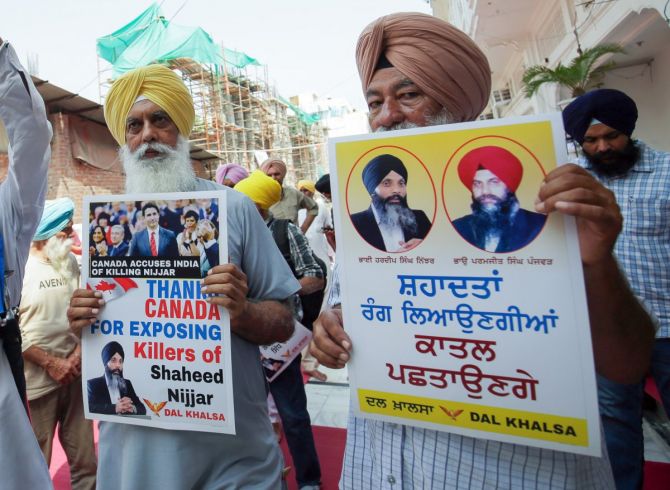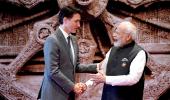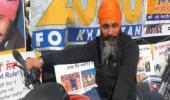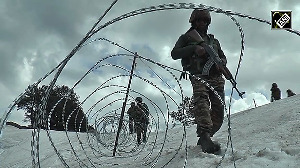Canada Foreign Minister Melanie Joly on Thursday said that her country's government held numerous conversations with the Indian government before Prime Minister Justin Trudeau's statement in the Canadian Parliament about "credible allegations" regarding New Delhi's involvement in the killing of Khalistani terrorist Hardeep Singh Nijjar.

She said that Indian officials in these conversations were made aware of the "credible allegations."
Addressing a press conference in Ottawa on Thursday, Joly also termed the decision to remove diplomatic immunities for 41 Canadian diplomats and their dependents in Delhi as "unprecedented."
Asked whether Canada has shown evidence regarding its claim to India, Joly said, "We have had numerous conversations with India before the Prime Minister went in front of the house and made his declaration. This was not a surprise to the Government of India and through these different conversations, the Indian officials were made aware of the credible allegations."
"And so based on that, India has decided to take their own decisions which are precedent-setting and revoking the diplomatic immunity of 41 diplomats is not only unprecedented but also contrary to international law and so in that sense because this is so unprecedented and would put so many countries, different diplomats around the world in danger. We decide not to reciprocate," she added.
"I've answered your question. You've asked me the question whether we had conversation and presented evidence. I've told you that there were meetings and information was shared," she further added.
Canada has withdrawn 41 diplomats and their family members from India after it threatened to strip them of their diplomatic immunity, Foreign Affairs Minister Melanie Joly has said, amid a diplomatic row over the killing of a Sikh separatist.
Tensions flared between India and Canada last month following Prime Minister Justin Trudeau's explosive allegations of the "potential" involvement of Indian agents in the killing of Khalistani extremist Hardeep Singh Nijjar on June 18 in British Columbia. India had designated Nijjar as a terrorist in 2020.
India angrily rejected the allegations as "absurd" and "motivated".
"I can confirm that India has formally conveyed its plan to unilaterally remove diplomatic immunities for all but 21 Canadian diplomats and dependents in Delhi by tomorrow, October 20," Joly said on Thursday.
Canada will be pausing all in-person services at the consulates in Chandigarh, Mumbai and Bengaluru and is now directing all Canadians in India to the High Commission in New Delhi.
Joly said that in their "unreasonable" request for diplomatic parity, India would only allow 21 diplomats and their families to maintain their diplomatic status, putting the others at risk of having their protections stripped arbitrarily, leaving them vulnerable to reprisal or arrest.
"This means 41 Canadian diplomats and their 42 dependents were in danger of having immunity stripped on an arbitrary date, and this would put their personal safety at risk," she said at a news conference in Ottawa.
"The safety of Canadians and of our diplomats is always my top concern. Given the implications of India's actions on the safety of our diplomats, we have facilitated their safe departure from India," Joly said. "This means that our diplomats and their families have now left."
Last month, India asked Canada to downsize its diplomatic staff in the country, arguing that there should be parity in strength and rank equivalence in the mutual diplomatic presence. The size of Canadian diplomatic staff in India is larger than what New Delhi has in Canada.












 © 2025
© 2025